Nutrition, Safety
Is it safe? Everyday Foods Your Dogs and Cats Should not Have
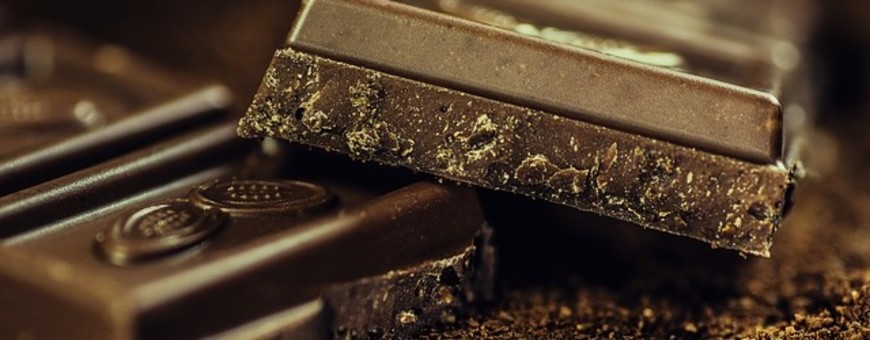
As cat and dog parents we’re always looking for new, delicious ways to motivate our pets. Each day there’s something new to learn about the different foods that can benefit our pets but not all information is good information. Whether you’re giving them table scraps or fresh produce as treats, there are some important things to know and specific foods you must avoid.
Dangerous Foods for Cats and Dogs
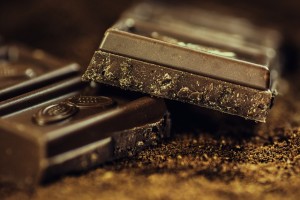 Chocolate Although chocolate is the most well-known of the banned foods, few realize it’s toxic for both cats and dogs. Chocolate naturally contains theobromine and caffeine, two chemicals that our pets simply cannot handle. These compounds can cause severe heart, liver, and digestion problems. As a general rule: the darker the chocolate, the greater the risk. White chocolate is the least dangerous, followed by milk chocolate; dark chocolate and baker’s chocolate are by-far the most deadly.
Chocolate Although chocolate is the most well-known of the banned foods, few realize it’s toxic for both cats and dogs. Chocolate naturally contains theobromine and caffeine, two chemicals that our pets simply cannot handle. These compounds can cause severe heart, liver, and digestion problems. As a general rule: the darker the chocolate, the greater the risk. White chocolate is the least dangerous, followed by milk chocolate; dark chocolate and baker’s chocolate are by-far the most deadly.
Fruit Pits While many fruits are completely safe for pets, the vast majority of the pits and leaves are not. Interestingly, many fruit stems and seeds contain highly toxic compounds (such as cyanide) that our pet partners metabolize more quickly. Make sure to only give the flesh of any fruit and remove all seeds, stems, leaves, pits, and cores. This includes parts from apples, apricots, cherries, peach pits, tomato leaves/stems, rhubarb leaves, and even potato leaves/stems.
Alcohol When it comes to celebrating, it can be tempting to want to include everyone in the festivities, even your party pupper or crazy kitty. No matter how tempting, giving your furry pal an alcoholic drink is a bad idea. Alcohol is highly toxic to dogs and cats, causing issues with vomiting, diarrhea, tremors and trouble breathing.
Garlic and Onions 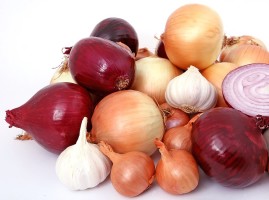 According to the ASPCA, nearly all species of garlic and onions are toxic for cats and dogs; including onion/garlic powder and chives. Due to a toxin called N-propyl disulfide The same compound that causes your eyes to water can lead to serious complications in four-footed creatures. This includes vomiting, bloody urine, acute weakness, irregular heart rate, and severe breakdown of red blood cells. Pay close attention to these foods during barbeques and remember, mustard is also dangerous for pets.
According to the ASPCA, nearly all species of garlic and onions are toxic for cats and dogs; including onion/garlic powder and chives. Due to a toxin called N-propyl disulfide The same compound that causes your eyes to water can lead to serious complications in four-footed creatures. This includes vomiting, bloody urine, acute weakness, irregular heart rate, and severe breakdown of red blood cells. Pay close attention to these foods during barbeques and remember, mustard is also dangerous for pets.
Artificial Sweeteners Though it seems obvious not to feed your pet Sweet’N Low, you would be surprised how many products have xylitol. Xylitol is a common artificial sweetener found in countless candies and gums that causes subtle releases of insulin in many species. Cats and dogs suffering from insulin imbalance are vulnerable to liver failure. Avoid giving any fuzzy friends candy and be cautious of discarded gum.
Nuts Nuts are often a go-to snack for humans. Nutrient-rich and low-carb, nuts are a common weight-loss food that boosts energy while providing a good source of fiber. Unfortunately, this isn’t true for our canine and feline friends. These high-fat treats can cause upset stomach and severe toxicity, depending on the type of nut. Macadamia nuts can cause temporary paralysis!
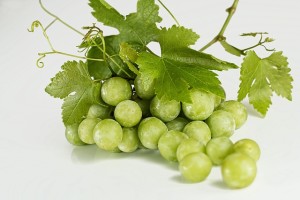 Grapes/Raisins Amazingly, grapes and raisins contain a mystery compound that causes kidney failure in dogs and sometimes cats. Despite knowing almost nothing about the toxin, veterinarians agree that raisins and grapes should be avoided at all cost. Be extra cautious of foods that like to sneak in raisins, such as trail mix, granola, and baked goods.
Grapes/Raisins Amazingly, grapes and raisins contain a mystery compound that causes kidney failure in dogs and sometimes cats. Despite knowing almost nothing about the toxin, veterinarians agree that raisins and grapes should be avoided at all cost. Be extra cautious of foods that like to sneak in raisins, such as trail mix, granola, and baked goods.
Undecided/Use with Caution
Milk/Dairy Cheese is one of the most common treats for tail-wagers, many even use slices to help give medicine. Strictly speaking, dairy foods aren’t necessarily toxic to pets…they’re just unhealthy. While your dog or cat probably loses their mind over a slice of cheese, their little digestive tracts can’t produce enough lactase, an enzyme needed to break down lactose for digestion. Much like a lactose-intolerant human, your furry friend may struggle with indigestion or diarrhea.
Animal Bones Our pet partners all descend from wild hunters but this doesn’t mean their bodies are capable of digesting the same diets. Animal bones are one of the most common causes of emergency vet trips, causing issues with broken teeth, block airways, mouth injuries, and even blocked/torn intestine. Splinters and bone chips can cause countless issues, consider bully sticks or no-hide chews instead.
Raw Meat Although animal digestive tracts are tough, undercooked/raw meat and eggs can still pose a threat of Salmonella or E. coli. Have some leftover bones or meat? Consider making a bone broth! Simply slow cook bones in water to allow the collagen and nutrients to infuse, making a perfect food topper or a healthy base for homemade treats!
Bacon 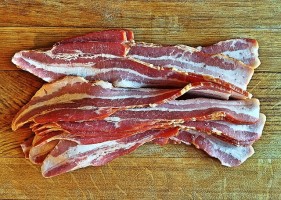 Nearly everyone is lured in by the smell of cooking bacon but many know the dangers of this delicious food. Although not technically toxic, bacon contains enough fat to create numerous health concerns; including pancreatitis.
Nearly everyone is lured in by the smell of cooking bacon but many know the dangers of this delicious food. Although not technically toxic, bacon contains enough fat to create numerous health concerns; including pancreatitis.
Corn Although there’s nothing toxic about corn, there’s nothing healthy about it either. Corn is an empty carbohydrate often used as a filler in low-quality foods. Difficult to digest and seemingly absent of any nutritional value, corn is just all around bad. Corn cobs are also a common choking hazard, posing risks of intestinal blockage as well.
Citrus Fruit Although the stems and seeds are still very dangerous, citrus fruits are not necessarily unsafe. In small doses, the acid found in oranges, lemons, limes, etc. may cause mild ingestion but consuming large quantities can cause nervous system depression. Safe fruits include strawberries, apples, pears, bananas, blueberries, raspberries, cantaloupe, mango, pineapple, and watermelon. Make sure to remove any skin, seeds, core, pits, stems, or leaves before giving to your pet.
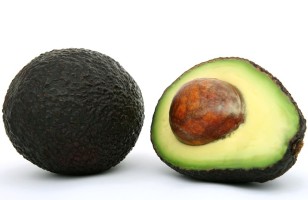 Avocado Similar to bacon, foods that have high fat content can lead to serious issues with digestion and metabolism. Interestingly, avocado is toxic to many birds, rabbits, horses/donkeys, sheep, and goats.
Avocado Similar to bacon, foods that have high fat content can lead to serious issues with digestion and metabolism. Interestingly, avocado is toxic to many birds, rabbits, horses/donkeys, sheep, and goats.
A healthy diet is the key to long, healthy life for pets and their parents. Our cuddly critters are always curious about what we eat, giving us their best dough eyes for a sniff or bite of whatever we have. As active pet parents we strive to share every part of our lives with them and keep them healthy. It’s always best to give them treats that meant specifically for them, but every once in a while most people give in. Just be sure that when you do, you provide your pets with healthy human food alternatives.
